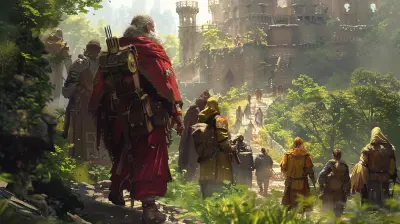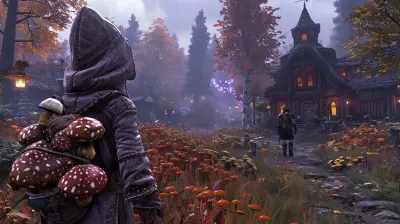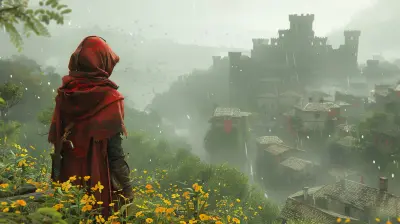The Influence of Real History on Game Lore
4 August 2025
Picture this—you're deep into a fantasy RPG, sword in hand, standing among ancient ruins while legends echo through the crumbling walls. The plot thickens, the lore unravels, and suddenly something clicks... you've heard a story like this before. But not in another game—in your history class.
Yep, that's right. Real history is the secret sauce behind some of the most captivating game worlds we’ve ever explored. Whether it’s the collapse of empires, religious crusades, or forbidden scientific experiments, actual human history has always lent inspiration to our favorite digital playgrounds.
So grab your controller (or keyboard), because we’re diving headfirst into how real-life events and figures continue to shape game lore in ways you probably never noticed.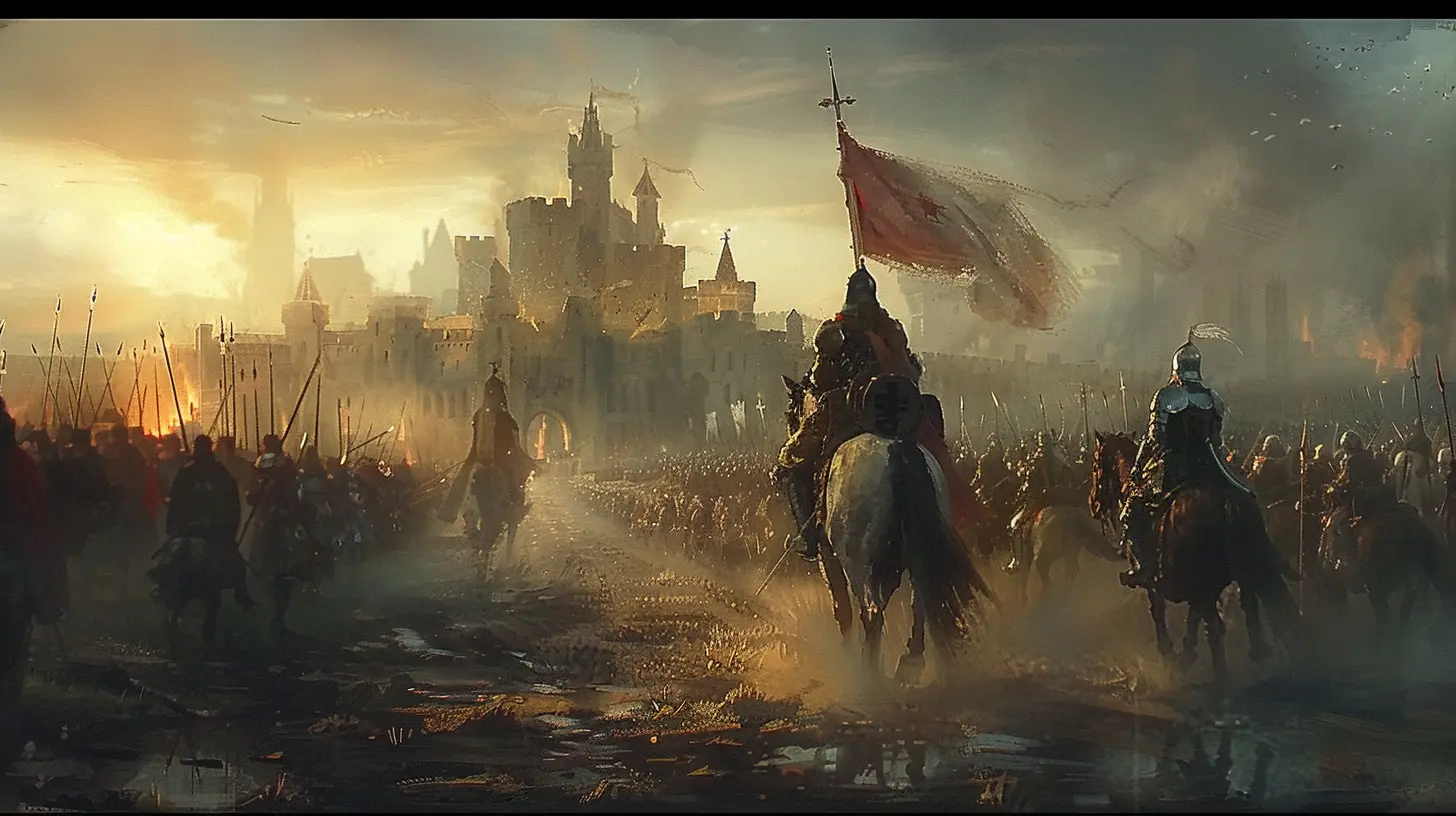
Why Game Developers Can't Resist History
Before we dive deep into game titles and timelines, let’s get one thing straight—history is juicy. It’s messy, dramatic, full of betrayal, war, love, and often stranger than fiction.Game developers see history not as a dusty old textbook, but as a treasure chest of ready-made narratives. Think about it: wars that shaped nations, revolutions that toppled kings, secret societies pulling strings behind the curtain—sound familiar?
Games need believable worlds, and history offers that authenticity on a silver platter. By blending fact with fiction, devs build immersive lore that feels real, because, well… parts of it are.
Medieval Mayhem: The Middle Ages in Games
Let’s kick things off with the big one—the medieval era. You know the drill: knights in armor, gothic castles, and dragons swooping overhead (okay, maybe just in the fantasy versions).Games like The Elder Scrolls, Dark Souls, and Dragon Age pull heavily from medieval Europe. But it’s not just the architecture or the swords—it's the feudal systems, the religious tension, the plague-ridden towns crawling with superstition.
These games reflect the rigid class structures and the constant power struggles that defined the Middle Ages. Even the in-game languages sometimes echo Old English or Latin, throwing you deeper into their pseudo-historical worlds.
And if you're into Kingdom Come: Deliverance, well, that one’s straight up history in disguise. No magic, no dragons—just brutal realism.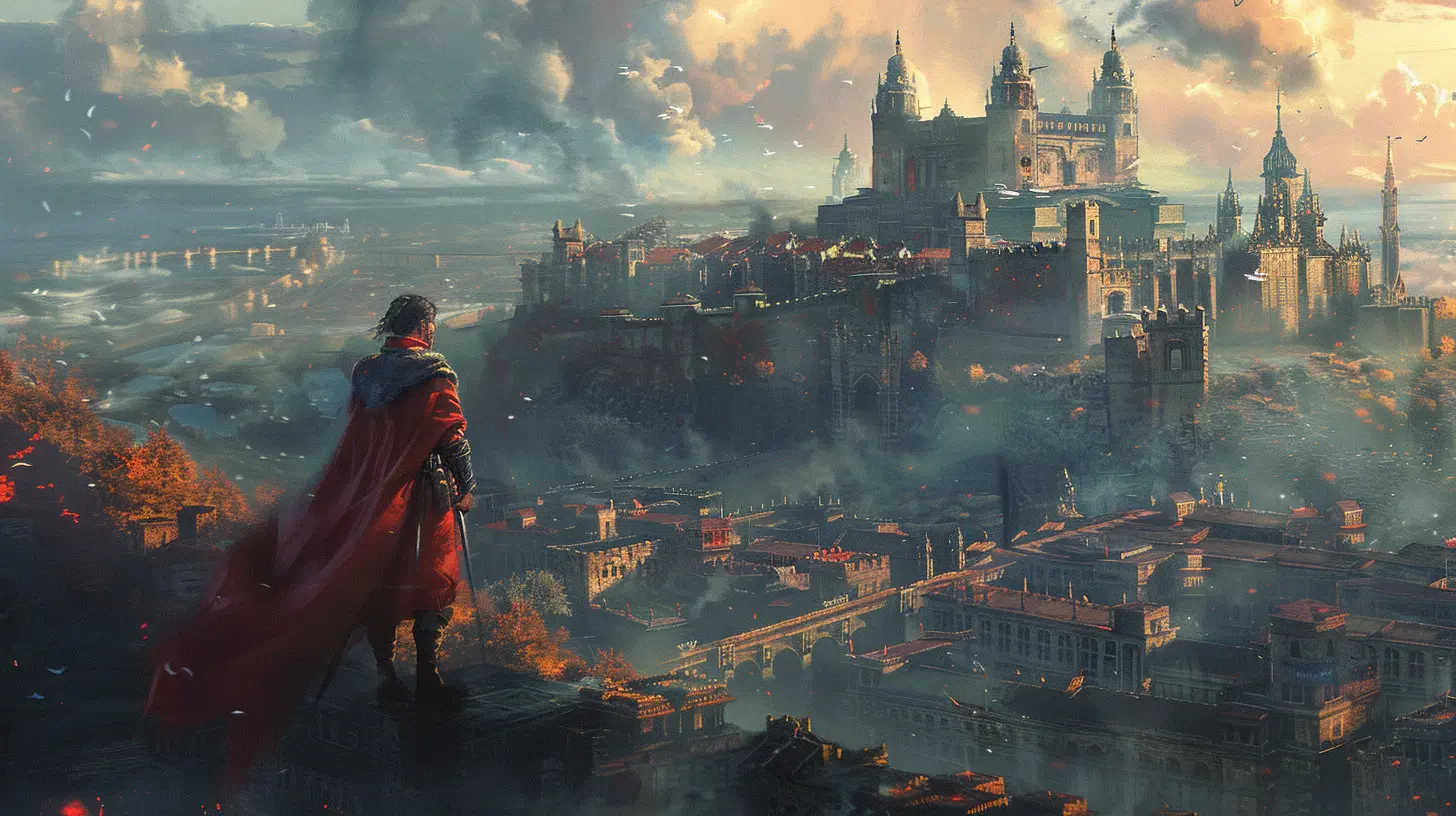
Ancient Civilizations: From Pharaohs to Philosophers
Now rewind even further. Ancient Egypt, Greece, and Rome have all left towering footprints in game lore.Take Assassin’s Creed Origins. While yes, it involves a secret brotherhood doing parkour across pyramids, the game’s roots are planted firmly in historical soil. Ubisoft spent years researching Ptolemaic Egypt to build not just a game, but a digital museum.
Then there's God of War, which dives deep into mythologies—Greek and Norse—with enough historical texture to give mythology professors goosebumps. Sure, Kratos isn’t a real guy (thank the gods), but the stories the game retells? Pure myth-history hybrids.
These ancient worlds offer rich, symbolic themes—power, fate, justice—that still resonate today. And games use them to stir something primal in us.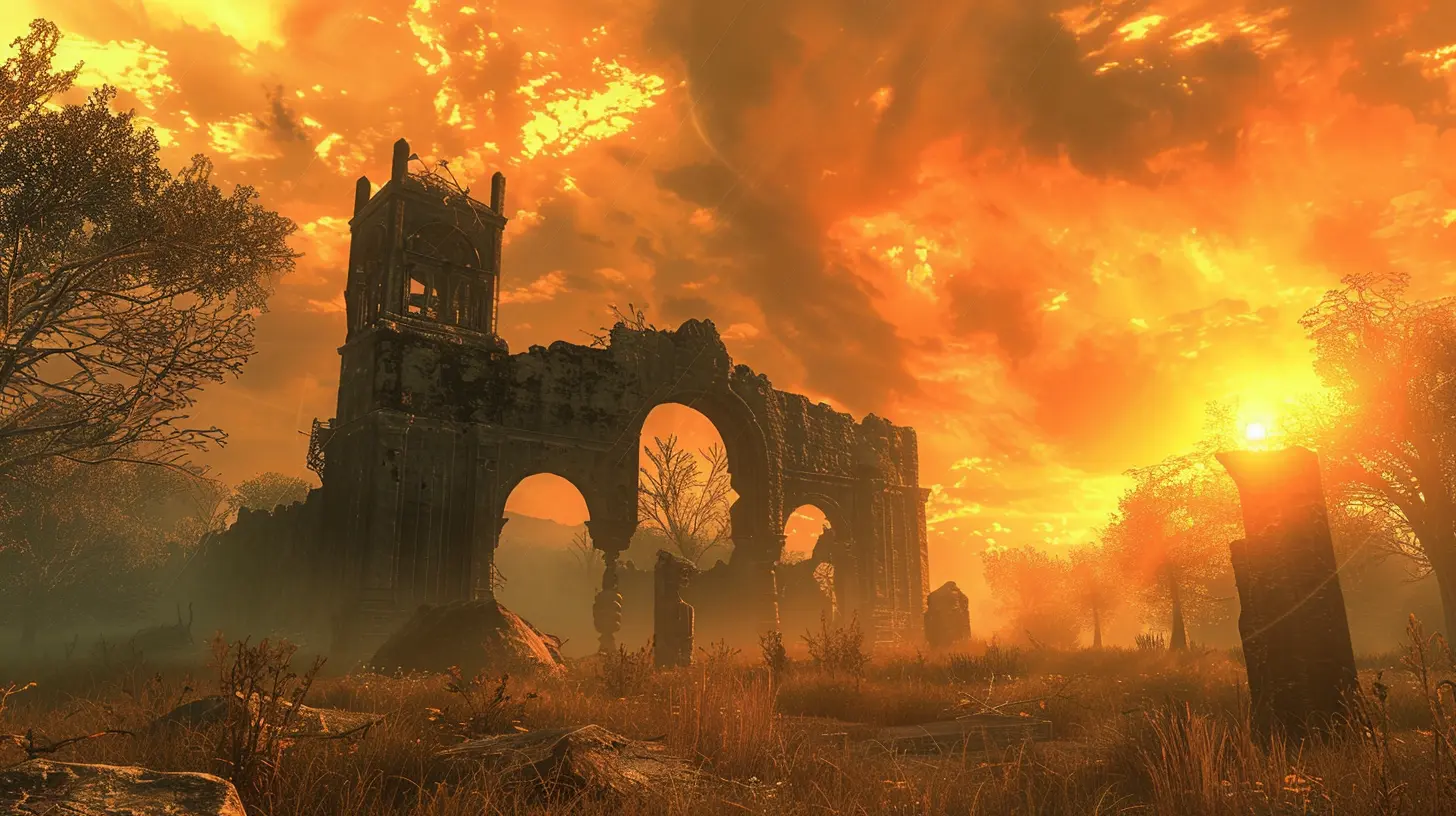
War Never Changes, But Game Lore Does
WWI and WWII are possibly the most documented events in human history. So it’s no surprise that they heavily influence shooter narratives and even fantasy themes.Games like Call of Duty, Battlefield, and Medal of Honor aim for historical accuracy to put players on the frontlines. But others, like Wolfenstein, twist history into bizarre alternate timelines. Nazis with mechs and laser guns? It’s horrifying—and ironically believable—because it spins off a dark chapter in real life.
Even Bioshock and Fallout, despite being more sci-fi, are soaked in post-war paranoia, Cold War aesthetics, and retro-futurism inspired by 1940s and 50s Americana.
History gives these worlds not just a backdrop, but a soul—a reminder of what humanity can become, for better or worse.
The Rise of Religion and Myth in Game Lore
Where would fantasy games be without a little divine intervention?Religion, mythology, and spiritual belief systems from history have been sliced and diced into countless magical systems and pantheons in games. But here’s the kicker—it’s not lazy copying. It’s thoughtful remixing.
Look at The Legend of Zelda series. Its Triforce system echoes the idea of balance between power, wisdom, and courage—concepts rooted in Eastern philosophies like Taoism and Shintoism.
Or take Final Fantasy Tactics, which mirrors the politics and corruption of religious institutions during Europe’s medieval church crises.
Games don't just use gods and myths as decorations—they build entire lore structures around theological tension, holy wars, and messianic figures. It mirrors the real world's blood-soaked past around belief and power.
Secret Societies and Conspiracies: When History Gets Creepy
Let’s talk shadowy groups for a sec.The Templars, the Illuminati, the Freemasons—these real organizations (or legends of them) are irresistible to game lore writers. Why? Because they already feel like fiction.
Assassin’s Creed again nails this, portraying an eternal conflict between Assassins and Templars. That duality taps into deeply human fears: control vs. freedom, secrecy vs. truth.
Then you’ve got games like Deus Ex and The Secret World, where every myth, every conspiracy theory, is true. It’s thrilling because it dances on the fringes of what we believe might be possible.
And history backs it all up. From alchemical experiments in the Renaissance to secret Nazi projects in WWII, games find lore gold in history’s shadows.
Revolutionary Vibes: Uprisings and Resistance in Game Storytelling
Gamers love an underdog tale. And history? It’s full of 'em.Revolutions and resistance movements—like the French Revolution, the American Revolution, or anti-colonial uprisings—spark compelling narrative arcs in game lore. These stories fuel games where players can rise against tyranny.
Dishonored, Half-Life 2, Red Faction, and Far Cry 5 all weave rebellion into their DNA. These games may fictionalize the setting, but the spirit of resistance is straight out of history’s playbook.
It gets personal. It gets emotional. And that's the point. History gives stakes to the struggle.
Historical Figures Reimagined
Ever fought with or against Leonardo da Vinci, George Washington, or Cleopatra in a game? You’re not alone.Games love to resurrect famous historical figures, only to twist their personas into epic, dramatic characters. Sometimes they’re allies. Sometimes they’re villains. Sometimes they’re robo-zombies (looking at you, Black Ops III).
Civilization series makes leaders like Gandhi or Genghis Khan part of strategic showdowns, while Total War actually simulates their historical empires.
It’s total fantasy with a factual flavor—and it makes for unforgettable storytelling.
The Fine Line Between Inspiration and Appropriation
Alright, time for a quick reality check.When games borrow from history, there’s a fine line they need to walk. Some games handle historical themes with deep respect and research. Others? Not so much.
There's been growing discussion around games oversimplifying, romanticizing, or even misrepresenting real cultures and conflicts. And yeah, it's a fair conversation. Because with great (lore-building) power comes great responsibility.
When done right, though, historical inspiration doesn’t just entertain—it educates. It opens doors for players to explore the real events behind the fantasy.
How History Enhances Player Immersion
Here’s the real magic trick: by basing game lore on historical truths, developers make the unreal feel tangible.You might not know the history of the Roman Empire, but when you play a game that echoes its rise and fall, things just click. The politics, the betrayals, the decadence—they feel grounded.
Suddenly, you care more. You get invested. Because what you’re experiencing isn’t just made up. It’s a reflection—sometimes brutal, sometimes beautiful—of real human stories.
History Isn’t Just the Past—It’s a Lore Machine
Game lore is more than just a backdrop. It’s a living, breathing identity for the worlds we play in.And history? It's that rich, gritty, endlessly fascinating foundation that makes these worlds mean something.
Whether it’s a myth retold through elven lips, a war refought in pixelated trenches, or a forgotten civilization rebuilt in pixels, real history pulses through the veins of gaming’s greatest tales.
So the next time you're knee-deep in lore, ask yourself: what part of this story might be real?
Because in the end, the gap between fact and fiction isn’t as wide as it seems—especially when you're holding a controller.
Final Thoughts: Play the Past, Shape the Future
History hooks us because it’s full of stories that echo through time. And game developers, with their digital paintbrushes, reimagine those echoes into immersive adventures.Games don’t just borrow from history—they honor it, challenge it, and ask, “What if?”
So next time you're exploring a haunted castle, leading a rebellion, or talking to a god disguised as a shopkeeper, remember: the roots of that encounter might stretch back centuries.
And if that doesn’t make you appreciate game lore a little more, I don’t know what will.
all images in this post were generated using AI tools
Category:
Game LoreAuthor:

Luke Baker
Discussion
rate this article
2 comments
Hayden Hubbard
This article effectively highlights how real historical events shape game narratives, enriching storytelling and player immersion. By intertwining fact with fiction, developers create compelling, authentic worlds that resonate deeply.
November 23, 2025 at 3:20 AM

Luke Baker
Thank you! I'm glad you found the article insightful. It's fascinating how history can enhance gaming experiences and create deeper connections with players.
Nell Simon
Reality shapes our imagination.
August 6, 2025 at 2:35 AM

Luke Baker
Absolutely, real history provides a rich tapestry for game lore, grounding our imaginative worlds in familiar experiences and truths.
